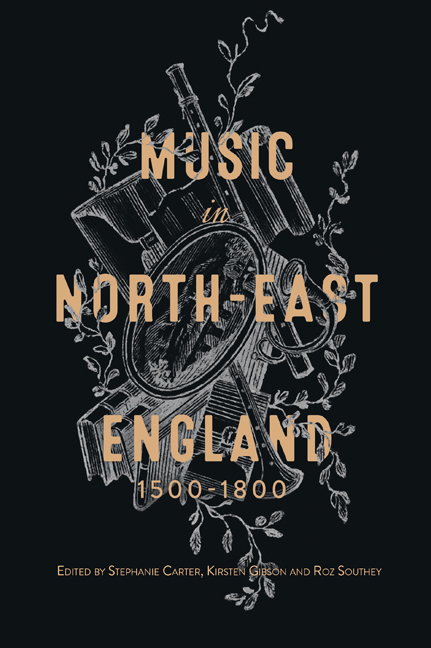14 - ‘Canny Newcassel’: Marshall’s Musical Metropolis of North Britain
Published online by Cambridge University Press: 17 November 2020
Summary
‘Bout Lunnun then divent ye myak sic a rout,
There's nowse there ma winkers to dazzle;
For a’ the fine things ye are gobbin about,
We can marra iv canny Newcassel.
[About London then don't you go making a shout,
There's nought there my eyes for to dazzle;
For all the fine things you are boasting about,
We can say too of bonny Newcastle.]
Thomas Thompson, c.1812The chorus of Thomas Thompson's topical ballad ‘Canny Newcassel’ is archetypical of late-Georgian songwriting on Tyneside, simultaneously articulating a fiercely local civic pride, and undercutting that sentiment with its knowingly bathetic use of dialect. Thompson (b.c.1773), at this time an established timber merchant who had held a commission in a volunteer regiment of horse, would naturally have written in what we know as Standard English, as would his immediate audience; in adopting this stylized narrative voice, he is being self-consciously parochial, a comic strategy that nuances, but does not negate, the display of local pride with which the song is concerned. An ostensibly ‘authentic’ small-town sentiment is instead something rather more complex, and to take it at face value does injustice to the reality of Newcastle upon Tyne around 1800: a boom town that claimed to have grown by 25% in the twenty years up to 1801; a cosmopolitan entrepôt significant enough that the governments of Russia, Prussia, Sweden and the United States each maintained a lifeboat on the Quayside for their citizens’ benefit; a melting pot for Dissenting communities including Scots Presbyterians, Unitarians, Baptists, Independents, Quakers, Methodists, Congregationalists, Glassites and Catholics; and, most pertinently to this chapter, a centre of both printing and ‘organised cultural activity of all kinds’ second only to London across the Atlantic archipelago. Newcastle functioned as a northern metropolis, its presses exerting influence over a broad geographical region that reached not only south to York and west into Cumbria, but also north into Lowland Scotland. The town boasted four prominent weekly newspapers, one of the country's two first Literary and Philosophical Societies, recently built New Assembly Rooms, a Theatre Royal and numerous churches and taverns that were sites for elite musical performance.
- Type
- Chapter
- Information
- Music in North-East England, 1500–1800 , pp. 282 - 302Publisher: Boydell & BrewerPrint publication year: 2020

